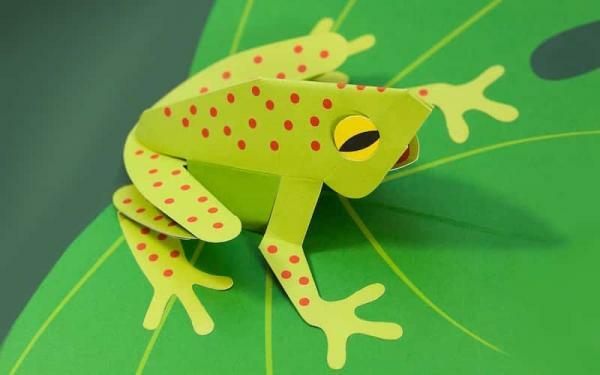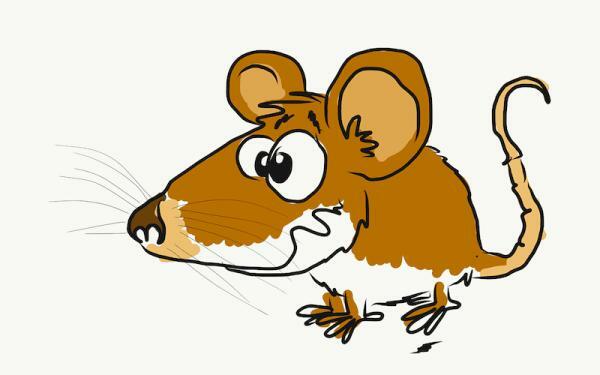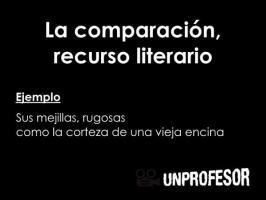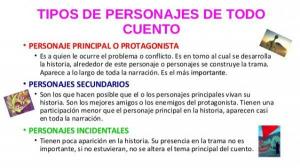17 Short Fables for Children

Below we collect 17 stories and fables adapted for children. If you want to work on aspects of your children's behavior, these stories will help you transmit messages appropriate for the education of your children. Fables are an ideal tool to work on very interesting educational aspects for your children in a fun way.
Index
- Fable "THE WOLF AND THE GOAT"
- Fable "THE TURTLE AND THE DUCKS"
- Fable: THE YOUNG CRAB AND HIS MOTHER
- THE FROGS AND THE OX
- THE DOG, THE ROOSTER AND THE FOX
- THE CAT'S JINGLEBELL
- THE EAGLE AND THE JACKDAW
- THE BOY AND THE HAZELNUTS
- HERCULES AND THE WAGONER
- THE BOY AND THE WOLF
- THE MOUSE OF THE CITY AND THE MOUSE OF THE FIELD.
- Fable: THE FOX AND THE GRAPES
- THE PACKAGE OF CLUBS
- THE WOLF AND THE CRANE
- THE DONKEY AND ITS DRIVER
- THE OXEN AND THE WHEELS.
- Fable: THE LION AND THE MOUSE
Fable "THE WOLF AND THE GOAT"
Once upon a time there was a little goat whose growing horns made him think that he was an adult capable of taking care of himself. So one afternoon when the flock started to go home from the field and his mother called him, the little goat paid no attention to him and kept nibbling on the young grass. A little later when he raised his head, the herd was gone. he was alone. The sun was setting. Long shadows came creeping across the ground. A small, cold wind came dragging with them making scary noises in the grass. The little goat shuddered as he thought of the terrible wolf that came at night. Then he began to bleat intensely looking for his mother.
But halfway, near a group of trees, was the wolf! The little goat knew that there was little hope for him. "Please, Mr. Wolf," she said shakily, "I know you're going to eat me. But first play a tune, because I want to dance and be happy as long as I can before." The wolf liked the idea of some music before eating, so he started to play a happy tune and the little goat jumped and danced happily. Meanwhile, the herd was slowly moving home. In the still at night, the sound of the Wolf's melody stretched far. The sheepdogs pricked up their ears and recognized the song the Wolf sings before a party, and in a moment they were running into the field. The wolf's song ended suddenly, and as he ran, with the dogs close on his heels, he called to himself a fool for playing a tune to please a little goat, when he should have gone on with his normal attack.
Moral: Never let anything keep you from your goal.

Fable "THE TURTLE AND THE DUCKS"
The tortoise, as you know, carries her house on its back. No matter how hard you try, you can never leave home. They say that Jupiter punished her, because she was so lazy that she stayed at home instead of going to Jupiter's wedding, despite being invited. After many years, the Turtle began to wish that he had gone to that wedding.
When she saw how merrily the birds were flying and how the rabbits and squirrels and all the other animals were running nimbly and always eager to see everything around, she loved her. the turtle felt very sad and disappointed since she wanted to see the world too, but there she was, with a house on her back and short legs that made it even more difficult to drag her. One day she met a couple of ducks and told them all about her problem. "We can help you see the world," said the ducks. "Grab a hold of this stick with your teeth and we'll take you high up in the sky where you can see the whole field. But stay still or you'll regret it."
The turtle was very happy. She gripped the stick firmly with her teeth, the two ducks grasping one end each and sailing away into the clouds. At that moment, a crow flew by. He was very amazed at the strange scene and shouted, "This must surely be the King of the Turtles!" "Well actually…" The turtle began to answer. But when she opened her mouth to say those foolish words, she gave up her grip on the stick, and fell to the ground, where she smashed into a rock.
Moral. Curiosity and foolish vanity often lead to misfortune.
Fable: THE YOUNG CRAB AND HIS MOTHER from him.
"Why are you walking sideways like that?" said a Crab mother to her son. "You should always walk forward with." "Show me how to walk, dear mother," answered the little Crab obediently, "I want to learn." Then the mother Crab tried and tried to walk forward. But she could only walk sideways, like her son. And when she wanted to flip her fingers, she tripped and fell on her nose.
moral Don't tell others how to act unless you can be a good example.
THE FROGS AND THE OX.
An Ox went down to a pond to drink. As he splashed heavily in the water, he squashed a young frog in the mud. The old frog soon missed the little boy and asked her brothers and sisters what they knew about him. "A great big monster," said one of them, "trodden on our little brother with one of his huge feet." "Big!" said the old frog, puffing up. "Was he as big as this? "Oh, much bigger!" they replied. The frog inflated even more. "He couldn't have been bigger than this," she said. But the little frogs insisted that the monster was much, much bigger, and the old frog kept getting bigger and bigger until suddenly it burst.
Moral: Don't try the impossible.

THE DOG, THE ROOSTER AND THE FOX.
A dog and a rooster, who were the best of friends, wanted to see something of the world and so they decided to leave the barnyard and travel the world along the road that led to the forest. The two friends traveled very comfortably during the day but without experiencing any adventure to speak of. At dusk, the rooster, looking for a place to sleep, as was his custom, searched nearby for a hole in a tree that he thought would be perfect for the night. The dog could crawl inside and the rooster would fly to one of the branches.
So they did and they both slept comfortably. With the first glimmer of dawn, the rooster woke up and for a moment forgot where he was. He thought that he was still in the pen where it was his duty to wake the family at dawn. So standing on tiptoes, he flapped his wings and sang heartily. But instead of waking up the farmer, he woke up a Fox not far from the forest. The fox immediately imagined a delicious breakfast and running to the tree where the rooster was, he said very politely: "A cordial welcome to our forest, sir. I can't tell you how glad I am to see you here. I'm pretty sure we'll become close friends." "I am very flattered, kind sir," replied the rooster slyly. "Please go to the door of my house at the foot of the tree, my doorman will let you in." The hungry but unsuspecting fox circled the tree as told and in the blink of an eye, the Hound had grabbed him.
moral Those who try to deceive can expect to be deceived in the same way.
THE CASCABEL OF THE CAT.
The mouse once called a meeting to decide on a plan to get rid of his enemy, the cat. At least they wanted to find some way to know when he would come, so they could have time to flee. In fact, something had to be done, for they lived in such constant fear of its clutches that they hardly dared leave their lairs night or day.
Many plans were discussed, but none were considered good enough. Finally, a very young Mouse stood up and said: "I have a plan that seems very simple, but I know that it will be successful. All we have to do is hang a bell around the cat's neck. When we hear the bell ring we will know immediately that our enemy is coming." All the mice were very surprised that they had not thought of such a plan before. But in the midst of rejoicing at his good fortune, an old Mouse stood up and said: "I will say that the young man's plan is very good but let me ask you a question: Who will bell the cat?
Moral: It is one thing to say that it should be done and quite another to do it.

THE EAGLE AND THE JACKDAW.
An eagle, darting down with its mighty wings, seized a lamb in its claws and carried it back to its nest. A raven saw the scene, and his foolish head got the idea that he was big and strong enough to do what the Eagle had done.
Then with much flapping of the wings and a ferocious look, he swooped down on the back of a large ram. But when he tried to get up again, he found that he could not escape, because his claws were entangled in the wool. And he was so far away from taking the ram that he didn't even notice he was there. The Shepherd saw the crow fluttering and immediately guessed what had happened. He caught the bird and clipped its wings. That night he gave the raven to his children. "What a funny bird is this!" they said laughing, "what do you call him, father? " "That's a raven, children. But if you ask him, he would tell you that he is an Eagle."
Moral: Don't let your vanity make you overestimate your capabilities.
THE CHILD AND THE HAZELNUTS.
A boy was given permission to stick his hand into a jar to grab some hazelnuts. But he took such a large handful that he couldn't get his hand out of it again. There he was, not wanting to give up a single hazelnut and yet unable to get them all out at once. Angry and disappointed he began to cry. "My boy," said his mother, "you will be satisfied with half of the nuts you grabbed and you can easily pull your hand out. So, you can grab more hazelnuts another time."
Moral: Don't try too much at once.
HERCULES AND THE WAGONER.
A farmer was driving his cart along a country road in heavy rain. The horses could hardly drag the load through the deep mud, and it finally came to a standstill when one of the wheels plunged into a puddle. The farmer got down from his seat and stood by the side of the cart, looking at it but making no effort to dig it out of the mud. All he did was curse his bad luck and call out for Hercules to come to his aid. Then Hercules actually appeared, saying, "Push the wheel with your shoulder, farmer, and drive your horses. Do you think you can move the car just by looking at it and complaining about it? Hercules won't help you unless you put in some effort to help yourself." And when the farmer put his shoulder on the wheel, he pushed her and asked the horses to pull, the cart he moved easily, and soon the farmer was riding very content and with a good lesson. learned.
Moral: Self-help is the best help. Heaven helps those who help themselves.
THE CHILD AND THE WOLF.
A playful boy had been left by the shepherd on the thatched roof of a sheep shelter to keep him out of harm's way. The boy was walking near the edge of the roof, when he saw a wolf and began to tease him, making faces and abusing him. "I listen to you," said the Wolf, "and I have not the slightest resentment" against you for what you say or do. When you're up there it's the ceiling that's talking, not you."
Moral: Don't say anything sometime that you wouldn't always say.
THE MOUSE OF THE CITY AND THE MOUSE OF THE FIELD.
A city mouse once visited a relative who lived in the country. For lunch, the field mouse serves him wheat stalks, roots, and acorns, with a sprinkling of cold water to drink. The Town Mouse ate very little, nibbling on some of this and some of that and by the way he made it very clear that he ate just to be nice. After the meal, the friends had a long talk, or rather the City Mouse talked about his life in the city while the Country Mouse listened. Then they went to bed in a cozy nest in a hedge and slept in peace and comfort until morning. In his dream, the Country Mouse dreamed that she was a City Mouse with all the luxuries and delights of city life that his friend described to her. So the next day, when the Town Mouse asked the Country Mouse to go to town with him, he gladly said yes. When they arrived at the mansion where the city mouse lived, they found the remains of a very fine banquet on the dining room table. There were sweets and jellies, cakes, delicious cheeses, in fact, the most tempting foods a Mouse could imagine. But just as the field mouse was about to nibble on a delicious piece of dough, he heard a Cat meow and scratch at the door. In great fear, the mice scurried into a hiding place, where they remained quite still for a long time, not daring to breathe. When they finally ventured out, the door was flung open and the servants came in to clear the table, followed by the house dog. The country mouse stopped at the city mouse's lair for just a minute long enough to collect his things and his umbrella. "You may have luxuries and sweets that I don't," he said as he hastened to leave, "but I prefer my simple food and my simple life in the country with the peace and security that come with it."
Moral: Poverty with security is better than abundance with fear and uncertainty.
Fable: THE FOX AND THE GRAPES.
A fox one day spied a beautiful bunch of ripe grapes hanging from a vine tangled along the branches of a tree. The grapes looked ready to burst with juice, and Fox's mouth watered as he gazed at them eagerly. The cluster was hanging from a high branch, so the fox had to jump to reach it. The first time he jumped he came a long way from reaching it. He then he walked a short distance and took a running leap, only to fall short once more. He tried again and again, but to no avail. Then he sat down and looked at the grapes with disgust. "What a fool I am," he said. "Here I am exhausting myself to get a bunch of sour grapes that are not worth it." And he walked very, very dismissively.
Moral: There are many who claim to despise and belittle what is beyond their reach.

THE PACKAGE OF STICKS.
A certain father had a family of sons, who were always fighting among themselves. There were no words that he said that could improve the situation, so he thought of a very clear example to make them see that discord would lead to misfortune. One day, when the fights had been much more violent than usual and each of the children was very aggressive, she asked one of them to bring her a pack of sticks. Then handing the package to each of his children, he told them to try to break it. But although each one did their best, none was able to. The Father then untied the package and gave the sticks to his sons to break them one by one. This they did very easily. "My children," said the Father, "don't you see how true it is that if you agree and help each other, it will be impossible for your enemies to hurt you? But if they are divided among you, they will not be stronger than a single stick in that pack."
Moral: Union make force.
THE WOLF AND THE CRANE.
A Wolf had been partying too vehemently, and a bone had gotten stuck across his throat. The bone could not go up or down, and of course the wolf could not eat anything. Naturally, that was horrible for a hungry wolf. So he went to see the Crane. He was sure that she, with her long, beaked neck, could easily reach the bone and pull it out of her. "I will reward you very well," said the wolf, "if you will get that bone out of my throat. The crane, as you can imagine, was very uneasy about putting its head down a wolf's throat. But she was holding on for dear life, so she did what the wolf asked her to do. When the Wolf felt that the bone had come out, he began to walk away. "But what happened to my reward!" said the Crane anxiously. "That!" growled the Wolf. "You do not have it? Wasn't it enough that I let you take your head out of my mouth without ripping it off? "
Moral: Do not expect a reward for serving the wicked.
THE ASS AND ITS DRIVER of him.
A donkey was being led along a path going down the mountain, when he suddenly decided in his naive head to choose his own path. He could see his destination at the bottom of the mountain, and for him, the quickest way down seemed to be over the edge of the nearest cliff. Just as he was about to jump, his driver grabbed his tail and tried to pull him back, but the stubborn donkey would not budge and pulled with all her might. "Very well," said his driver, "be on your way, you willful beast, and see where it leads you." With that, he released him, and the donkey fell face-first down the mountain.
Moral: Those who do not listen to reason but stubbornly go their own way against the kind advice of those who are wiser than they are on the path to misfortune.

THE OXEN AND THE WHEELS.
A pair of Oxen pulled a heavily laden carriage down a country road. They had to use all their strength to pull the cart, but they didn't complain. The wagon wheels were something else. Although the task they had to do was very light compared to that of the oxen, they creaked and grunted every step of the way. The poor oxen pulled with all their might to drag the cart through the deep mud and their ears only heard the noise complaining of the wheels. And this, as you can imagine, made his job that much harder to bear. "Silence!" the oxen cried at last when their patience had run out. “What do you have wheels to complain about so much? We're pulling all the weight ourselves, not you, and yet we're not complaining about it."
Moral: Those who suffer less complain more.
Fable: THE LION AND THE MOUSE.
A lion was lying asleep in the woods with its great head resting on its paws when a small and timid Mouse ran into him unexpectedly, and in his fear and haste to escape, ran up the nose of the lion. His nap interrupted, the lion placed his huge paw angrily on the little creature to kill it. "Forgive me!" pleaded poor Mouse. "Please let me go and one day I will surely repay you." The lion had a lot of fun thinking that a Mouse could help him. But he was generous and finally let the Mouse go. Some days later, while he was stalking his prey in the forest, the lion got caught in a hunter's net. Unable to break free, he filled the forest with his angry roar. The mouse knew the voice and quickly found the Lion fighting in the net. Running to one of the great ropes that bound him, he bit at it until he broke away, and soon the Lion was free. "You laughed when I told you I would pay you," said the Mouse. "Now you see that even a Mouse can help a Lion."
Moral: Goodness is never wasted.

If you want to read more articles similar to Short Fables with Moral for Children, we recommend that you enter our category of literary concepts.



